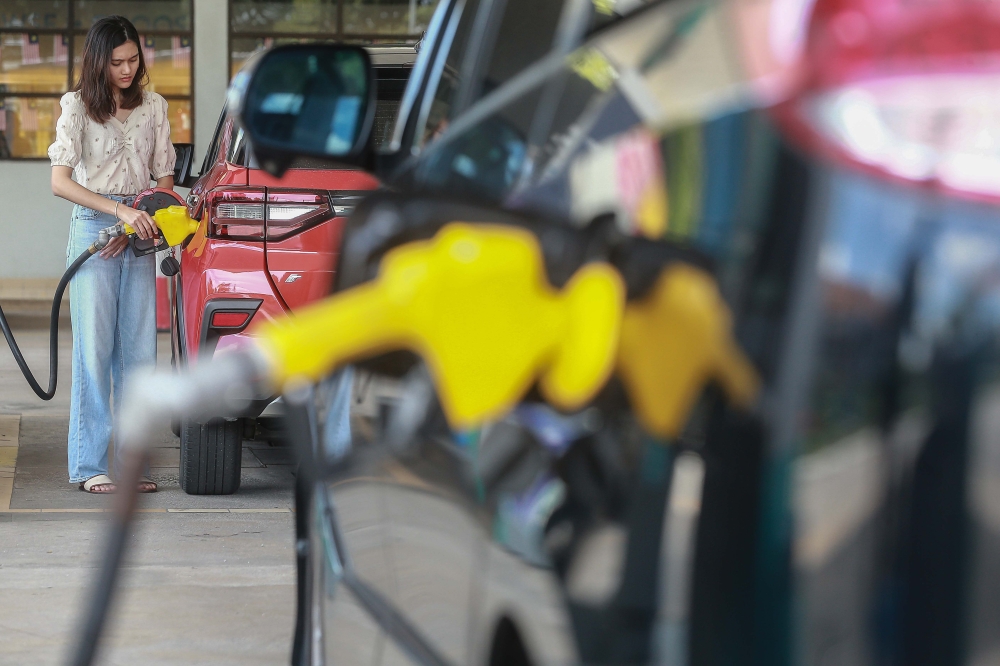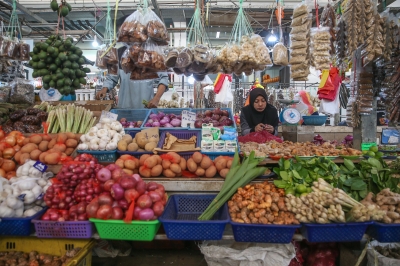- Prime Minister Datuk Seri Anwar Ibrahim will table his third federal budget today, focusing on increasing development spending while managing falling revenue and the fiscal deficit.
- With no plans to reintroduce GST, analysts expect possible subsidy cuts, including adjustments to the RON95 petrol subsidy, and new taxes such as a sugar-sweetened beverage tax.
- Anwar’s budget will also address rising operating expenditure due to civil servant salary hikes and may prioritise infrastructure projects like MRT3 and the Kuala Lumpur-Singapore High-Speed Rail.
KUALA LUMPUR, Oct 18 — Prime Minister Datuk Seri Anwar Ibrahim will table his third federal budget today, which may see more subsidy cuts and possibly new taxes as his administration bids to raise development spending while offsetting falling revenue.
Amid expectations of falling revenue such as from oil and gas dividends, the focus will be on how Putrajaya plans to fund social assistance and development spending while simultaneously reducing the chronic fiscal deficit.
Anwar has also vowed that his government would not temper efforts to rein in public debt, and promised any spending cuts would not affect allocations to alleviate living pressure, which will now be restricted to only low-income households and not the middle class.
With no GST, will RON95 subsidy be cut to fill up coffers?
Last month, analysts at BMI Research warned that Putrajaya may miss its revenue target this year as non-tax revenue and crude oil prices fall.
It pointed to data showing federal revenue collection this year is at its lowest in five years, despite increasing sales and services tax and the introduction of a capital-gains tax.
Last week, Anwar again shot down talks of reintroducing the Goods and Services Tax (GST) despite analysts repeatedly calling it the best option to raise revenue.
The prime minister said he would only consider reinstating the consumption tax when the minimum wage is between RM3,000 and RM4,000, rather than RM1,500 now, since doing this now would especially burden the poor.
With GST unlikely to make a comeback, the best next bet would be recalibrating spending saved from cutting subsidies.
RHB Investment Bank was quoted last month saying some “adjustments” to RON95 petrol subsidy may finally come in Budget 2025, in line with the Anwar government’s pledge to reduce its staggering subsidy bill.
This may come as early as the end of this year, it said, although Anwar was quoted saying in July that there was neither a plan for such a move yet nor a policy paper on it. Currently, RON95 petrol is sold at the ceiling price of RM2.05 per litre, a limit set by the Malaysian government in February 2021.

SUNGAI BULOH 16/10/2024 Road user was seen refueling their vehicles before resuming their trip here at Sungai Buloh. PICTURE BY SAYUTI ZAINUDIN
What other taxes may be on the horizon?
There have also been talks that Anwar could announce other new taxes, like the previously mooted high-value goods tax — also called luxury goods tax — which was scrapped following pushback from retailers targeting elite clients.
However, a new sugar-sweetened beverage (SSB) tax was already hinted at by Health Minister Datuk Seri Dzulkefly Ahmad, as the government steps up efforts to combat an epidemic of non-communicable diseases in Malaysia.
Budget 2024 already saw the SSB rise to 50 sen per litre, which Dzulkefly said has already led to a 9.25 per cent reduction in sugary drink consumption nationwide.
Far from uncertain, however, is the proposal of an inheritance tax, which Anwar had conceded may discourage domestic investment. Already, real estate developers have called to be exempted from it.
These concerns over falling revenue are compounded by expectations that operating expenditure would rise as the million over civil servants get a salary bump from December, which Anwar announced on Labour Day.
Kenanga Investment Bank Bhd said it expects operating expenditure to rise to RM306.5 billion in 2025, up from RM302.5 billion projected for 2024. Meanwhile, it saw allocation for development expenditure going up to RM94.5 billion, up from RM88.5 billion in this year’s forecast.
Observers and analysts pointed to transport as the primary developmental focus for Putrajaya in the near future, driven by the anticipated revival of key infrastructure projects such as the Mass Rapid Transit 3 and the Kuala Lumpur-Singapore High-Speed Rail.
Other announcements to look out for is the revision of the minimum wage, currently at RM1,500, which the Ministry of Human Resources have hinted would be announced “very soon”. This was last revised up from RM1,200 in 2022.

